The Law Committee agrees with the proposal that localities must set aside a portion of revenue from commercial housing to compensate and build technical infrastructure for social housing projects.
Today (June 5), the National Assembly will discuss the draft Law on Housing (amended) in the draft group after listening to Minister of Construction Nguyen Thanh Nghi, authorized by the Prime Minister, read the bill.
In the draft law submitted to the National Assembly, the Government proposed that provincial People's Committees must allocate land funds for investment and development of social housing. At the same time, localities will have to set aside a certain proportion of revenue from land use and rental fees of investment projects to build commercial housing and urban areas for compensation, site clearance and investment in technical infrastructure of social housing projects. This is to overcome the recent reality in some localities where land is only reserved for commercial projects and no separate land fund is allocated for social housing.
The Law Committee approved this provision, but suggested assessing its feasibility based on the need for social housing development in the coming period. This is to avoid the situation where localities do not properly allocate collected land use fees for the above items.
Considering that the deduction of revenue from land use and rent is still budget money, the auditing agency proposed to add regulations on the responsibility of contributing funds for building social housing of investors of commercial housing projects and urban areas.
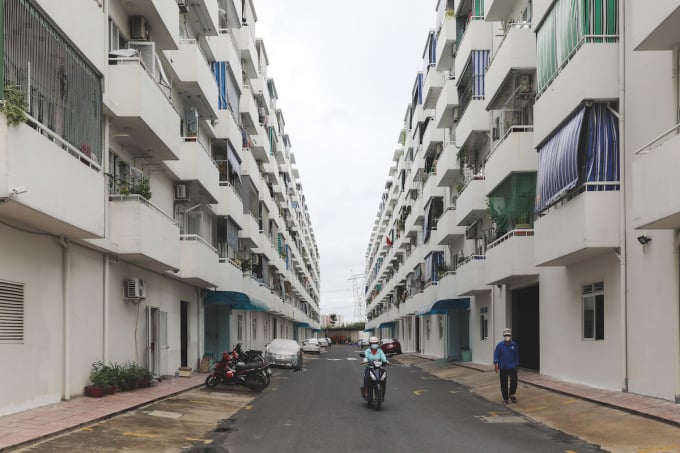
A social housing area in Binh Tan district, Ho Chi Minh City. Photo: Quynh Tran
According to the proposal, investors building social housing will enjoy a series of incentives, such as exemption from rent, land use, 10% of the area for building social housing, and preferential loans with low interest rates. Investors will also be able to account separately and enjoy all profits from the area for commercial services in the social housing project.
The Law Committee noted that there should be specific regulations on the maximum proportion of land reserved for commercial service business facilities in social housing projects. This is to avoid abuse and negativity in applying for permission to build social housing projects, but the main goal of the investor is to have land for commercial service business facilities.
In addition, there are opinions in the Law Committee requesting clarification on which cost the 10% profit incentive for the social housing construction area is calculated on.
Regarding the selling, renting and hire-purchase prices of social housing invested and built by the State, the draft law adds provisions on "correctly calculating" costs to recover capital, reasonable and valid costs. The review agency proposed to clarify other reasonable costs included in the selling price or to stipulate principles and conditions for costs to be considered reasonable when included in the selling price.
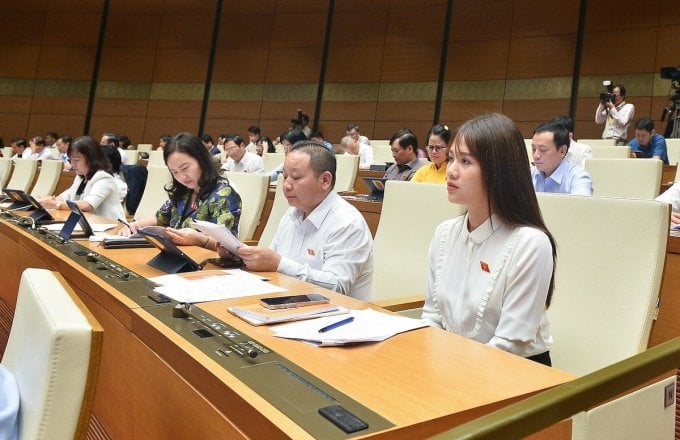
National Assembly delegates at Dien Hong meeting room. Photo: National Assembly Media
Regarding the renovation and construction of old apartment buildings , in this presentation, the Government has removed the option of a term of ownership of apartment buildings after receiving comments from the National Assembly Standing Committee. However, the examining agency believes that the draft law has not yet clarified the bottlenecks that cause the relocation of people from dangerous apartment buildings at risk of collapse.
"If the old apartment building is damaged and at risk of collapse and the residents have not been relocated, who will be responsible for the consequences? The government needs to research and prescribe necessary and appropriate enforcement measures to remedy this situation," the investigation agency stated.
Unlike the current law, the Government proposes that investors in projects to renovate and rebuild old apartment buildings will develop compensation and resettlement plans for the apartment owners to decide. The Law Committee believes that this regulation may create problems because it is difficult to reach 100% consensus.
To remedy this, the agency proposed to determine the voting rate for the compensation and resettlement plan of the apartment owners. At the same time, the Provincial People's Committee will decide on the compensation and resettlement plan if after a certain period of time, no agreement can be reached.
Regarding the land use rights of the apartment building renovation and reconstruction project, the inspection agency said there is a conflict with the content of the Land Law, so it is necessary to review to ensure the rights of apartment building owners with stable and long-term residential land.
Some opinions suggested that the draft Law should clarify the case where the provincial People's Committee invests capital to demolish and rebuild apartment buildings, and how the ownership of these buildings after reconstruction is determined. In addition, the owners need to be responsible and share the financial burden with the State, especially for privately owned apartment buildings that have expired and are at risk of collapse.
According to the working program, today the Government also submitted to the National Assembly the draft Law on Credit Institutions (amended) and discussed in the following group this content and the draft Law on Water Resources (amended).
Source link







![[Photo] General Secretary To Lam meets with General Secretary and President of Laos Thongloun Sisoulith](https://vphoto.vietnam.vn/thumb/1200x675/vietnam/resource/IMAGE/2025/10/25/1761380913135_a1-bnd-4751-1374-7632-jpg.webp)
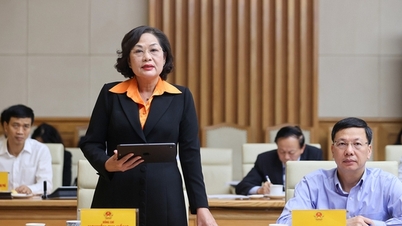

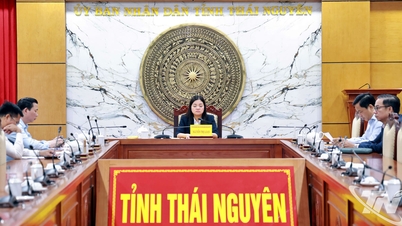

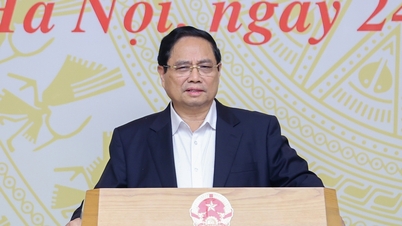

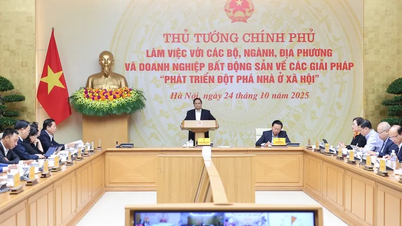























![[Photo] President Luong Cuong and United Nations Secretary-General Antonio Guterres chaired the signing ceremony of the Hanoi Convention.](https://vphoto.vietnam.vn/thumb/1200x675/vietnam/resource/IMAGE/2025/10/25/1761370409249_ndo_br_1-1794-jpg.webp)

![[Photo] President Luong Cuong receives heads of delegations attending the signing ceremony of the Hanoi Convention](https://vphoto.vietnam.vn/thumb/1200x675/vietnam/resource/IMAGE/2025/10/25/1761377309951_ndo_br_1-7006-jpg.webp)







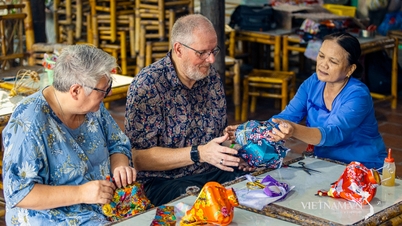



























![[Photo] General Secretary To Lam receives United Nations Secretary-General Antonio Guterres](https://vphoto.vietnam.vn/thumb/402x226/vietnam/resource/IMAGE/2025/10/25/1761379090768_image.jpeg)








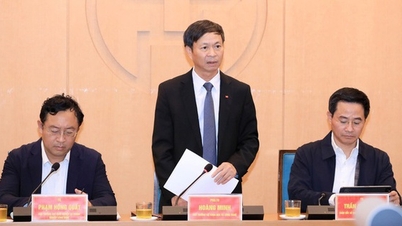























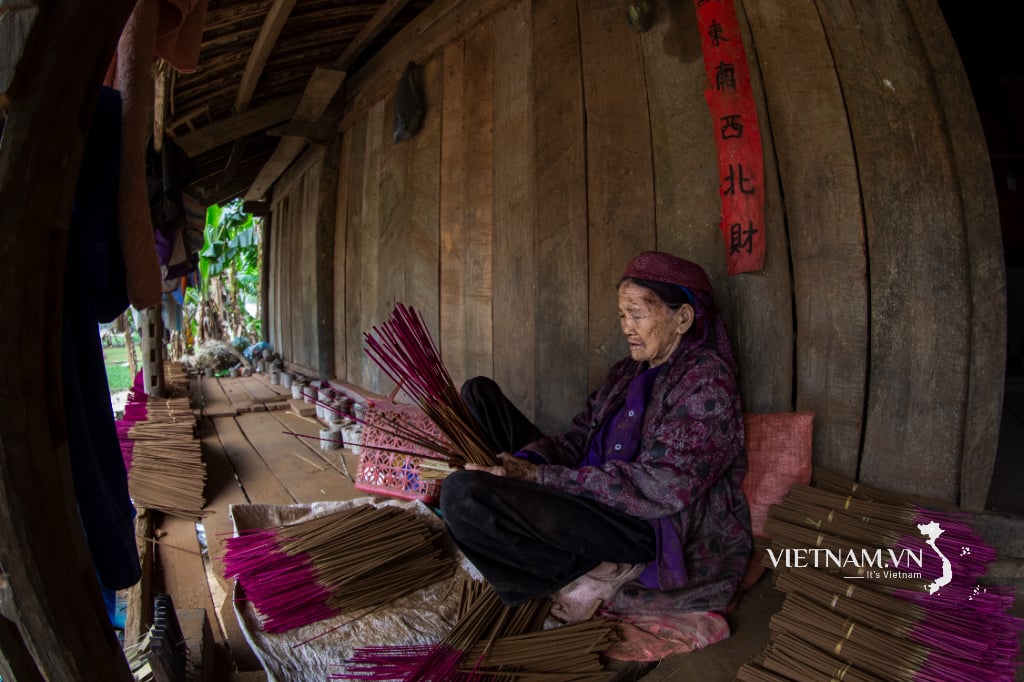


Comment (0)